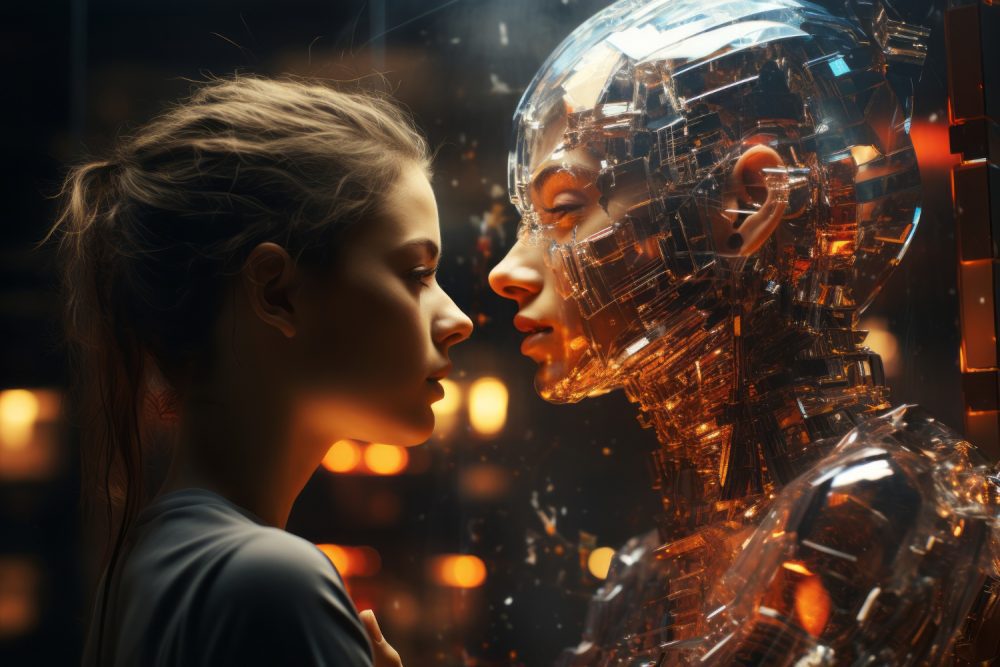With AI’s rise, many worry about its impact on jobs, particularly those in knowledge-based professions—roles that rely on expertise, critical thinking and creativity. However, AI isn’t a threat to these workers; instead, it’s a powerful tool that can enhance their productivity and effectiveness.
While AI excels at processing data and automating routine tasks, it must maintain the human ability to generate original ideas, make nuanced judgments or build meaningful relationships. Knowledge workers should view AI as an opportunity to boost their impact rather than a competitor.
AI’s Limits in Original Thought and Creativity
Despite its impressive capabilities, Artificial Intelligence has significant limitations. One of the most crucial is its inability to think creatively. AI can analyse data and follow algorithms, but it cannot come up with original ideas. It lacks the human ability to think outside the box and draw from experience, intuition and emotion to create something unique.
Creativity is a cornerstone of knowledge work. Whether it’s designing a marketing campaign, developing a new product or writing a compelling article, creativity is what sets knowledge workers apart. AI can assist in the process, but it cannot replace the human touch. It can generate suggestions based on data, but it takes a human to decide which ideas are worth pursuing and to develop them into something meaningful.
Moreover, AI’s decision-making capabilities are limited by the data it’s fed. It can only make recommendations based on existing information. If the data is biased or incomplete, the AI’s output will be too. Human judgment is needed to interpret AI’s suggestions, consider the broader context and make decisions that take into account factors beyond what AI can measure.
AI Can’t Replace Genuine Connection
Another area where AI falls short is human interaction. Knowledge work often involves collaboration, negotiation and relationship-building, which are areas where human qualities like empathy, communication and emotional intelligence are key. AI might be able to simulate conversation, but it cannot truly understand or respond to human emotions.
Human interaction is critical in fields like counselling, education and customer service. A counsellor uses empathy and understanding to help clients navigate their problems. An educator motivates and inspires students through personal connection. A customer service representative resolves issues by understanding the customer’s needs and emotions. AI can assist in these roles by providing information or handling routine inquiries, but it cannot replace the human connection that is at the heart of these professions.
Even in more analytical fields, human interaction plays a vital role. Consider a financial advisor working with a client to plan for retirement. While AI can provide data on investment options and predict market trends, it’s the advisor’s understanding of the client’s goals, risk tolerance and personal circumstances that lead to the best advice. The trust and rapport built through human interaction are irreplaceable by AI.
Human Judgment Remains Irreplaceable
This highlights the importance of human judgment. Knowledge workers rely on their expertise, experience and critical thinking to make decisions. While AI can provide data and insights, it’s the human element that turns information into meaningful action, especially in high-stakes fields like medicine, law and finance.
For instance, a doctor might use AI to analyse symptoms and suggest diagnoses, but it’s the doctor’s judgment, honed through years of training, that determines the best course of action. AI supports decision-making but cannot replace the nuanced understanding of human expertise.
In business, leaders might leverage AI to forecast trends or analyse competitors. Still, their judgment shapes the company’s direction, considering factors like culture, reputation and long-term goals—elements AI cannot fully grasp.
Continuing professional development or CPD training courses are vital in sharpening these human skills. While AI streamlines processes, ongoing education ensures that professionals remain experts, capable of making informed, creative and ethical decisions that AI cannot.
An Assistant Rather Than a Threat
AI is transforming the way knowledge workers do their jobs. By automating routine tasks, AI frees up time for more complex and value-added activities. Imagine a researcher who spends hours sifting through data. With AI, much of that data processing can be done in minutes. This allows the researcher to focus on interpreting the data, identifying patterns and drawing meaningful conclusions. The result? Faster insights and better outcomes.
In fields like law, AI tools can review documents and highlight relevant information, saving lawyers from hours of tedious work. In marketing, AI can analyse consumer data and suggest strategies, enabling marketers to craft more targeted campaigns. The possibilities are vast and the benefits are clear: AI helps knowledge workers do more in less time, enhancing their ability to provide value.
AI Can Instead Boost Productivity
One of AI’s advantages is its ability to boost productivity, particularly by automating routine tasks. This allows knowledge workers to focus on high-value activities. By analysing time usage and identifying inefficiencies, AI tools can suggest strategies to improve productivity.
For example, a writer struggling with writer’s block can use generative AI to quickly go over ideas on how to proceed. Similarly, project managers can use generative AI to quickly generate first drafts and visual representations of their ideas. Knowledge workers can combine AI adoption with an online time management training programme to hand over menial tasks to AI and boost productivity.
Summary
AI is a powerful tool, but it is not a threat to knowledge workers. It cannot generate original thought, make nuanced judgments or replace the human connection. Instead, AI should be seen as an ally—one that can help knowledge workers be more productive, make better decisions and focus on what they do best: thinking creatively, solving complex problems and building relationships.
Knowledge workers who embrace AI and leverage it to enhance their skills will remain at the forefront of their fields. Rather than competing with AI, they can use it to amplify their strengths and continue to provide the unique value that only human expertise and creativity can offer.
